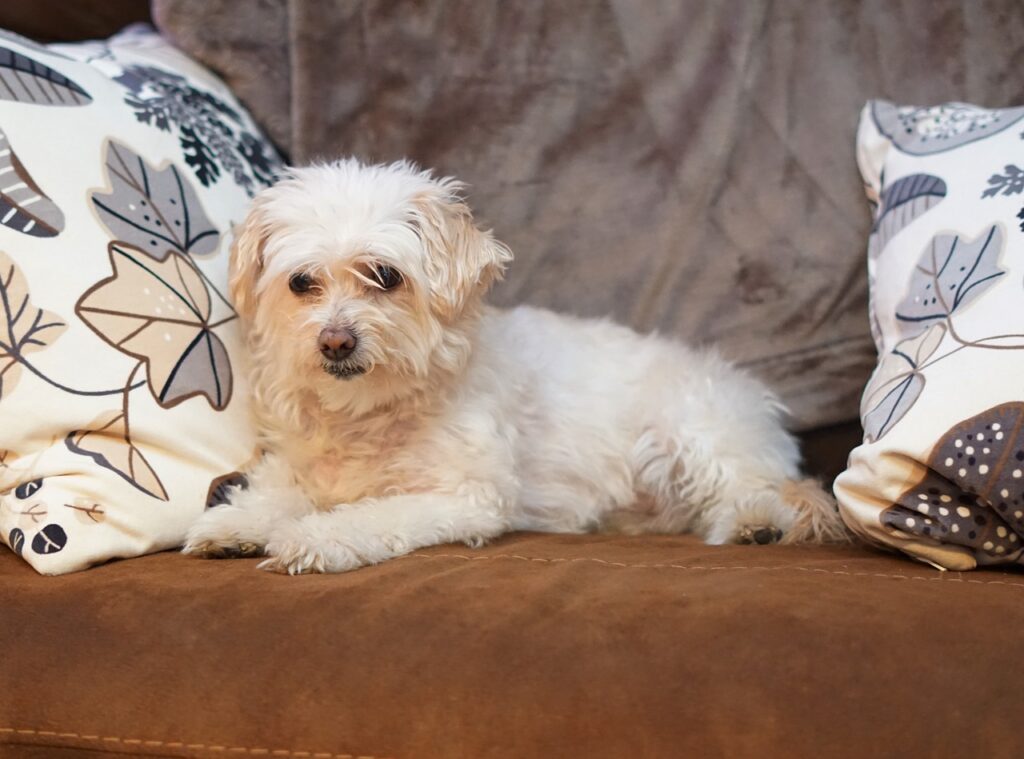
Are you someone who loves dogs but suffers from allergies? If so, you’re not alone! Many individuals experience allergies to pet dander, making it difficult to find a furry companion. But don’t worry, because we’re here to help! In this article, we will explore different low-shedding dog breeds that are ideal for allergy sufferers. From hypoallergenic poodles to adorable bichon frises, we’ll provide you with the information you need to find a dog that won’t trigger your allergies. So, get ready to discover your perfect four-legged friend who will bring joy to your life without causing any dreaded sneezing fits or itchy eyes. Let’s get started!

Hypoallergenic Dog Breeds
What are hypoallergenic dog breeds?
Hypoallergenic dog breeds are breeds that are considered to be more suitable for individuals who suffer from allergies. While no dog breed is truly hypoallergenic as all dogs produce some level of allergens, hypoallergenic breeds are known to produce fewer allergens and cause fewer allergic reactions in sensitive individuals. These breeds are often sought after by allergy sufferers who still want to enjoy the companionship of a dog without experiencing severe allergic symptoms.
Benefits of hypoallergenic dog breeds
There are several benefits to choosing hypoallergenic dog breeds for allergy sufferers. Firstly, these breeds tend to produce less dander, which is a common allergen. This means that individuals with allergies are less likely to experience sneezing, coughing, and itching when in contact with these dogs. Additionally, hypoallergenic breeds often have hair instead of fur, which reduces the amount of shedding. This can be particularly advantageous for those with allergies, as it minimizes the amount of allergens that become airborne and spread throughout the house. Lastly, hypoallergenic dog breeds are often deemed to be more suitable for individuals with mild allergies, allowing them to still enjoy the love and companionship of a furry friend.
Popular hypoallergenic dog breeds
There are several popular hypoallergenic dog breeds that are known for being more suitable for allergy sufferers. Some examples include the Bichon Frise, Maltese, Shih Tzu, Yorkshire Terrier, and the Cavalier King Charles Spaniel. These breeds are often recommended by veterinarians and allergists due to their low allergen production and minimal shedding. They also tend to have a friendly and affectionate nature, making them great companions for individuals with allergies.
Factors to Consider for Allergy Sufferers
Understanding dog allergies
It is crucial for allergy sufferers to have a deep understanding of their allergies before bringing a pet into their home. Allergies to dogs are typically triggered by a protein found in their saliva, urine, and dander (dead skin cells). It is not the dog’s fur itself that causes allergies, but rather the allergens that stick to the fur. Different individuals may have varied reactions to different allergens, so it is important to identify the specific triggers before choosing a hypoallergenic dog breed.
Level of shedding
The shedding level of a dog is an important factor to consider for allergy sufferers. Dogs that shed less are known to produce fewer allergens and are typically better suited for individuals with allergies. Hypoallergenic dog breeds tend to have hair instead of fur, which means they shed less compared to other breeds. However, it is important to note that no dog breed is completely non-shedding, and regular grooming is still necessary to keep shedding to a minimum.
Saliva and dander production
Aside from shedding, the amount of saliva and dander produced by a dog can also impact allergy sufferers. Some breeds produce less saliva and dander, which reduces the potential allergens present in the environment. It is advisable to choose a breed that is known for lower production of these allergens to minimize the risk of triggering allergic reactions.
Allergy testing and precautions
Before bringing any dog into a home with allergy sufferers, it is recommended to undergo allergy testing. This can help determine specific allergens that may be triggering allergic reactions and guide individuals in selecting a suitable hypoallergenic dog breed. Additionally, allergy sufferers should take precautions such as washing hands after handling the dog, keeping the dog out of bedrooms, and regularly cleaning the house to minimize exposure to allergens.
Non-Shedding Dog Breeds
What are non-shedding dog breeds?
Non-shedding dog breeds are breeds that shed very little or not at all. These breeds have hair instead of fur, which grows continuously and does not have a shedding cycle like fur. As a result, they are less likely to leave excess hair and dander around the house, making them a desirable choice for allergy sufferers.
Advantages of non-shedding dog breeds
Non-shedding dog breeds offer several advantages to allergy sufferers. Firstly, their minimal shedding reduces the amount of allergens present in the environment, which can significantly reduce allergic reactions. These breeds also tend to have less dander, as dead skin cells are typically carried away by brushing or fall out less frequently. Additionally, non-shedding breeds are often considered to be more hypoallergenic, making them a popular choice for individuals with allergies.
Examples of non-shedding dog breeds
There are several non-shedding dog breeds that are known for their suitability for allergy sufferers. Some examples include the Poodle, Soft Coated Wheaten Terrier, Kerry Blue Terrier, Portuguese Water Dog, and Chinese Crested. These breeds have hair that continuously grows and requires regular grooming, but their minimal shedding makes them a great choice for individuals with allergies.
Small Dog Breeds for Allergy Sufferers
Bichon Frise
The Bichon Frise is a small hypoallergenic dog breed known for its white and fluffy coat. They have hair instead of fur, which means they shed less and produce fewer allergens. Bichon Frises are friendly, affectionate, and great with children, making them a popular choice for allergy sufferers who are looking for a small companion dog.
Maltese
The Maltese is another small hypoallergenic dog breed that is suitable for allergy sufferers. They have a long and silky coat that grows continuously, and their minimal shedding makes them a great choice for individuals with allergies. Maltese dogs are known for their playful and loving nature, and they make great indoor pets.
Shih Tzu
The Shih Tzu is a small dog breed that is known for its long and luxurious coat. Despite their glamorous appearance, Shih Tzus shed very little and their hair requires regular grooming to prevent matting. They are friendly, affectionate, and adaptable, making them a popular choice for individuals with allergies who are looking for a small and low-shedding companion.
Yorkshire Terrier
Yorkshire Terriers, or Yorkies, are small hypoallergenic dog breeds that are loved for their small size and feisty personality. They have a beautiful silky coat that is long and requires regular grooming. Yorkies shed very little, making them a great choice for individuals with allergies who are looking for a small and lively companion.
Cavalier King Charles Spaniel
The Cavalier King Charles Spaniel is a small dog breed known for its friendly and gentle nature. They have a medium-length coat that is easy to groom and sheds minimally. Cavalier King Charles Spaniels are great companions for allergy sufferers, as their low-shedding coat and loving temperament make them a joy to have around.

Medium-Sized Dog Breeds for Allergy Sufferers
Poodle
Poodles are medium-sized hypoallergenic dog breeds that come in different sizes, including standard, miniature, and toy. Poodles have hair that grows continuously and requires regular grooming. They shed very little, making them suitable for allergy sufferers. Poodles are also highly intelligent and trainable, making them a popular choice for families and individuals who are looking for an active and hypoallergenic dog.
Soft Coated Wheaten Terrier
The Soft Coated Wheaten Terrier is a medium-sized hypoallergenic dog breed known for its soft and silky coat. While they do shed some hair, it tends to get trapped in their curly coat, reducing the amount of hair that is released into the environment. Regular grooming is necessary to prevent matting and maintain their hypoallergenic qualities. Soft Coated Wheaten Terriers are friendly, energetic, and make great companions for allergy sufferers.
Kerry Blue Terrier
Kerry Blue Terriers are medium-sized hypoallergenic dog breeds known for their distinctive curly coat. They have hair that grows continuously and requires regular grooming to maintain their hypoallergenic qualities. Kerry Blue Terriers shed very little, making them suitable for individuals with allergies. They are intelligent, loyal, and playful, making them a beloved choice for those seeking a medium-sized hypoallergenic companion.
Portuguese Water Dog
The Portuguese Water Dog is a medium-sized hypoallergenic dog breed that was historically known for helping fishermen. They have a dense and curly coat that requires regular grooming. Portuguese Water Dogs shed very little, making them an ideal choice for individuals with allergies. They are known for their friendly and active nature, and they make great companions for individuals and families alike.
Chinese Crested
The Chinese Crested is a unique medium-sized dog breed that comes in two varieties: hairless and powderpuff. The hairless variety of Chinese Crested dogs has very minimal hair, while the powderpuff variety has a soft and silky coat. Both varieties shed very little, making them excellent choices for allergy sufferers. Chinese Cresteds have a friendly and outgoing personality, and their unique appearance often draws attention and admiration.
Large Dog Breeds for Allergy Sufferers
Irish Water Spaniel
The Irish Water Spaniel is a large hypoallergenic dog breed known for its distinctive curly coat. They have hair that grows continuously and requires regular grooming to maintain their hypoallergenic qualities. Irish Water Spaniels shed very little, making them a suitable choice for individuals with allergies who are looking for a larger companion. They are intelligent, active, and make great family pets.
Giant Schnauzer
Giant Schnauzers are large hypoallergenic dog breeds that are known for their protective and loyal nature. They have a dense and wiry coat that requires regular grooming to prevent matting. Giant Schnauzers shed very little, making them a great choice for individuals with allergies who are looking for a larger hypoallergenic dog. They are highly trainable and make excellent working dogs and companions.
Airedale Terrier
Airedale Terriers are large hypoallergenic dog breeds that are known for their intelligent and confident nature. They have a wiry and dense coat that requires regular grooming. Airedale Terriers shed very little, making them a suitable choice for individuals with allergies who are looking for a larger hypoallergenic companion. They are versatile and active dogs that excel in various activities, including agility and obedience.
Afghan Hound
The Afghan Hound is a large hypoallergenic dog breed known for its elegant appearance and luxurious coat. Despite their glamorous appearance, Afghan Hounds shed very little, making them a popular choice for individuals with allergies who are looking for a larger hypoallergenic dog. Their long and flowing coat requires regular grooming to prevent matting, but their minimal shedding reduces the amount of allergens in the environment.
Bouvier des Flandres
Bouvier des Flandres is a large hypoallergenic dog breed that was historically used for herding and guarding. They have a dense and water-resistant double coat that requires regular grooming. Bouvier des Flandres shed very little, making them suitable for individuals with allergies who are looking for a larger hypoallergenic dog. They are known for their loyalty, intelligence, and protective nature, making them excellent working dogs and family companions.
Crossbreeds and Hybrid Dogs
What are crossbreeds?
Crossbreeds, also known as hybrid dogs or designer dogs, are the result of intentionally breeding two different purebred dog breeds. These hybrid dogs often inherit desirable traits from both parent breeds, and in some cases, the aim is to produce low-shedding and hypoallergenic offspring suitable for allergy sufferers.
Popular low-shedding crossbreeds
There are several popular low-shedding crossbreeds that are considered suitable for allergy sufferers. Some examples include the Labradoodle (Labrador Retriever and Poodle mix), Goldendoodle (Golden Retriever and Poodle mix), Cockapoo (Cocker Spaniel and Poodle mix), and the Schnoodle (Schnauzer and Poodle mix). These crossbreeds often combine the hypoallergenic qualities of one breed with the desirable traits of the other, making them appealing choices for individuals with allergies.
Benefits of crossbreeds for allergy sufferers
Crossbreeds can offer several benefits to allergy sufferers. Firstly, they often inherit the low-shedding qualities of their hypoallergenic parent breed, which can significantly reduce the amount of allergens in the environment. Crossbreeds can also have a diverse range of appearances and temperaments, allowing allergy sufferers to find a dog that fits their preferences and lifestyle. Additionally, crossbreeds tend to have fewer health issues compared to purebred dogs, as they often inherit a broader genetic pool from their parent breeds.
Grooming and Maintenance
Brushing and bathing routines
Regular brushing and bathing routines are crucial for maintaining the hypoallergenic qualities of low-shedding and hypoallergenic dog breeds. Brushing helps remove loose hair, dander, and dirt from the coat, reducing the amount of allergens in the environment. It is recommended to brush your dog at least once or twice a week, depending on the breed and coat type. Bathing should be done regularly using a hypoallergenic shampoo to keep the skin and coat clean and minimize allergens.
Importance of regular grooming
Regular grooming is essential for allergy sufferers to minimize the risk of allergies and keep their low-shedding or hypoallergenic dog healthy and comfortable. Grooming involves not only brushing and bathing but also nail trimming, ear cleaning, and dental care. It is important to establish a routine and adhere to it consistently to maintain the overall cleanliness and hygiene of the dog. Regular grooming can also contribute to the bond between the owner and the dog.
Tips for managing allergies while grooming
Managing allergies while grooming can be challenging for individuals who are sensitive to dog allergens. It is advisable to wear gloves and a mask while grooming to minimize direct contact with allergens. Grooming should ideally take place in a well-ventilated area or outside to reduce the concentration of allergens in the air. All grooming tools should be regularly cleaned and disinfected to prevent the buildup and spread of allergens. If allergies are severe, it may be necessary to seek assistance from a professional groomer or a family member without allergies.
Other Considerations for Allergy Sufferers
Allergy-friendly home environment
In addition to choosing a low-shedding or hypoallergenic dog breed, creating an allergy-friendly home environment can further alleviate allergy symptoms for individuals with allergies. This can involve minimizing the presence of allergens by regularly cleaning surfaces, vacuuming carpets and furniture using a HEPA filter, and using allergen-proof covers on mattresses and pillows. It is also important to maintain good indoor air quality by using air purifiers, ensuring proper ventilation, and reducing humidity.
Reducing allergens in the house
Reducing allergens in the house is crucial for individuals with allergies. Regular cleaning and vacuuming help remove pet dander and hair from surfaces, reducing the overall allergen load. It is also important to wash bedding, curtains, and other fabrics that may trap allergens regularly. Hardwood or laminate flooring is preferred over carpets, as it is easier to clean and does not trap allergens as easily. Additionally, keeping the dog out of certain areas of the house, such as bedrooms, can help minimize exposure to allergens.
Consultation with allergists or veterinarians
Allergy sufferers considering getting a dog, especially those with severe allergies, should consult with allergists or veterinarians to ensure they make an informed decision. Allergists can help identify specific allergens and provide guidance on managing allergies, while veterinarians can provide advice on suitable hypoallergenic dog breeds and grooming routines. These professionals can work together to ensure that allergy sufferers have the best chance of successfully living with a dog while minimizing allergy symptoms.
Conclusion
For allergy sufferers, choosing a low-shedding or hypoallergenic dog breed can make all the difference in being able to enjoy the companionship, love, and joy that a furry friend brings. While there is no such thing as a completely hypoallergenic dog breed, there are several breeds that produce fewer allergens and shed less, making them more suitable for individuals with allergies. From small breeds like the Bichon Frise and Maltese to larger breeds like the Airedale Terrier and Giant Schnauzer, there are options available for allergy sufferers who desire a dog in their lives. By considering factors such as shedding level, saliva and dander production, and consulting with professionals, individuals with allergies can find the perfect hypoallergenic dog breed to join their family and enrich their lives. Remember to prioritize regular grooming and maintain an allergy-friendly home environment to further minimize allergy symptoms. With the right preparations and considerations, allergy sufferers can experience the joys of dog ownership while keeping their allergies under control.

